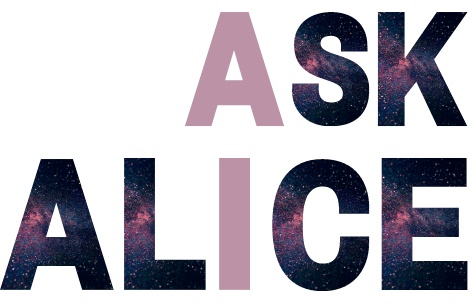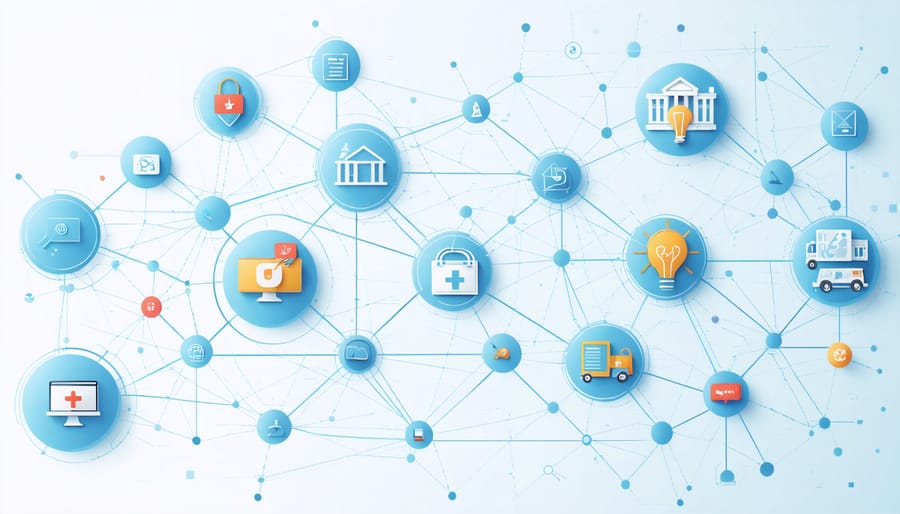Cross-industry expertise empowers professionals to leverage artificial intelligence across multiple sectors, transforming conventional business models and creating unprecedented career opportunities. While building a successful AI career traditionally focused on specialized domains, today’s most valuable professionals navigate seamlessly between healthcare, finance, manufacturing, and retail applications.
This versatility stems from the fundamental nature of AI solutions: pattern recognition, data analysis, and automated decision-making remain consistent across sectors, while only the specific use cases change. For instance, the same machine learning algorithms that detect fraudulent financial transactions can identify manufacturing defects or predict patient outcomes in healthcare settings.
Understanding cross-industry applications has become crucial as organizations increasingly seek professionals who can translate AI success from one sector to another. This adaptability not only enhances career prospects but also accelerates innovation by bringing proven solutions from mature AI implementations to emerging applications. As technology continues to blur traditional industry boundaries, mastering cross-industry implementation has evolved from a competitive advantage to an essential professional skill.
What Makes AI Integration Truly Cross-Industry?
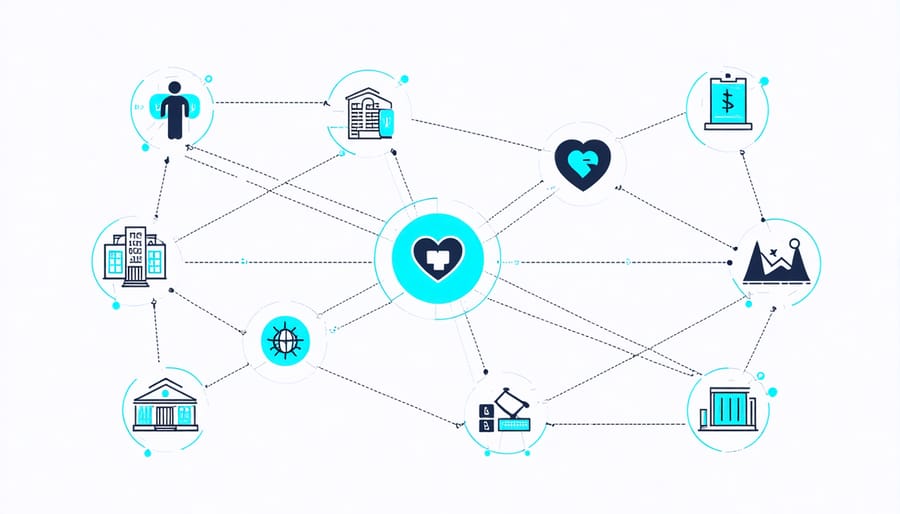
Core Technical Elements
Several fundamental technical elements remain consistent across different industries when implementing AI and digital transformation initiatives. These include data management and analytics, which form the backbone of any technology-driven solution. Programming skills, particularly in languages like Python and SQL, enable professionals to manipulate and analyze data effectively across various business contexts.
Cloud computing knowledge has become increasingly crucial, as most modern solutions rely on cloud infrastructure regardless of the industry. Understanding API integration and web services allows professionals to connect different systems and create seamless workflows, a necessity in today’s interconnected business landscape.
Project management methodologies, such as Agile and Scrum, are universally applicable technical frameworks that help deliver successful outcomes across sectors. Additionally, cybersecurity awareness and implementation of security best practices are essential skills that translate across all industries handling digital assets and sensitive information.
Version control systems and collaborative development tools represent another set of technical skills that remain consistent, enabling efficient teamwork and code management regardless of the specific industry application. These core technical elements create a foundation that professionals can build upon as they move between different sectors.
Universal Business Applications
Across various sectors, AI solutions address common business challenges that transcend industry boundaries. AI integration across industries typically focuses on core operational needs shared by most organizations. These include customer service automation through chatbots and virtual assistants, predictive maintenance of equipment and infrastructure, and optimization of supply chain operations.
Data analytics and business intelligence represent another universal application, helping organizations make informed decisions based on historical data and market trends. AI-powered security systems protect assets and information across sectors, while automated document processing streamlines administrative tasks in virtually every business environment.
Resource allocation and workforce management benefit from AI’s ability to analyze patterns and predict needs, whether in healthcare scheduling, retail staffing, or manufacturing shift planning. Marketing automation and personalization tools help businesses across sectors better understand and engage their customers, while quality control systems ensure consistent product and service delivery regardless of industry focus.
These applications demonstrate how AI solutions can be adapted and scaled to meet similar challenges across different business contexts, making them truly universal in nature.
High-Impact Industry Crossovers
Healthcare and Manufacturing
The convergence of AI techniques between healthcare and manufacturing showcases a remarkable example of cross-industry application. Image recognition algorithms initially developed for medical imaging, such as those used to detect tumors in X-rays and MRIs, are now being repurposed for quality control in manufacturing. These systems can spot defects in products with similar precision to how they identify medical anomalies.
For instance, deep learning models trained to analyze patient scans can be adapted to inspect circuit boards or automotive parts for microscopic flaws. The core principles of pattern recognition and anomaly detection remain the same, while only the training data and specific parameters need adjustment. This transfer of technology works both ways – manufacturing’s real-time monitoring systems have inspired improvements in patient vital sign tracking and medical equipment maintenance.
The shared foundation of these applications demonstrates how AI expertise in one sector can directly translate to another, creating valuable opportunities for professionals to pivot between industries while leveraging their existing knowledge and experience.
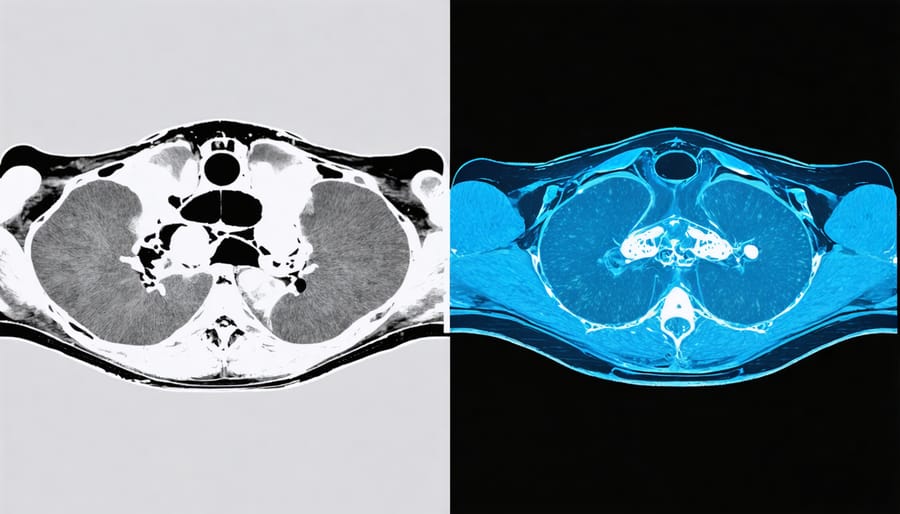
Finance and Retail
The finance and retail sectors showcase some of the most compelling examples of cross-industry AI applications. In both fields, AI systems analyze customer behavior patterns to predict purchasing decisions and assess risk levels, though for different end goals. For instance, retail companies use customer behavior analysis to optimize product placement and personalize recommendations, while financial institutions employ similar algorithms to evaluate creditworthiness and detect fraudulent transactions.
Consider how a retail chain’s purchase prediction model shares core similarities with a bank’s risk assessment system. Both rely on pattern recognition in historical data, demographic information, and behavioral indicators. The main difference lies in the output: retailers focus on increasing sales and customer satisfaction, while banks aim to minimize financial risks and maintain security.
This overlap creates opportunities for professionals to transfer their skills between sectors. A data scientist who has developed customer segmentation models for an e-commerce platform can adapt those same techniques to create risk profiles for a financial institution. Similarly, fraud detection systems developed for banking can be modified to identify suspicious purchasing patterns in retail environments, demonstrating how AI solutions can be effectively repurposed across these interconnected industries.
Chemistry and Software Development
The intersection of chemistry and software development represents a fascinating example of cross-industry innovation, particularly in the realm of AI algorithms. Just as chemists analyze molecular structures to understand compound behavior, software developers optimize code patterns to enhance program efficiency. AI has become the bridge connecting these seemingly distinct domains.
Machine learning algorithms now assist chemists in predicting molecular interactions and drug discovery processes, while simultaneously helping developers optimize code structure and identify potential bugs. This parallel demonstrates how computational thinking can be applied across different fields to solve complex problems.
For instance, neural networks trained on molecular databases can predict chemical reactions with remarkable accuracy, much like how code analysis tools use similar algorithms to suggest better programming patterns. The underlying principles of pattern recognition and predictive modeling remain consistent across both domains.
Recent developments have seen the emergence of hybrid tools that combine chemical modeling with software optimization techniques. These tools help pharmaceutical companies accelerate drug development while also improving the efficiency of their research software infrastructure. This convergence has created new roles for professionals who understand both chemistry and programming, leading to innovative solutions that wouldn’t be possible within either field alone.
The success of this cross-industry application demonstrates how AI can serve as a universal translator between different scientific disciplines, creating value through unexpected connections and insights.
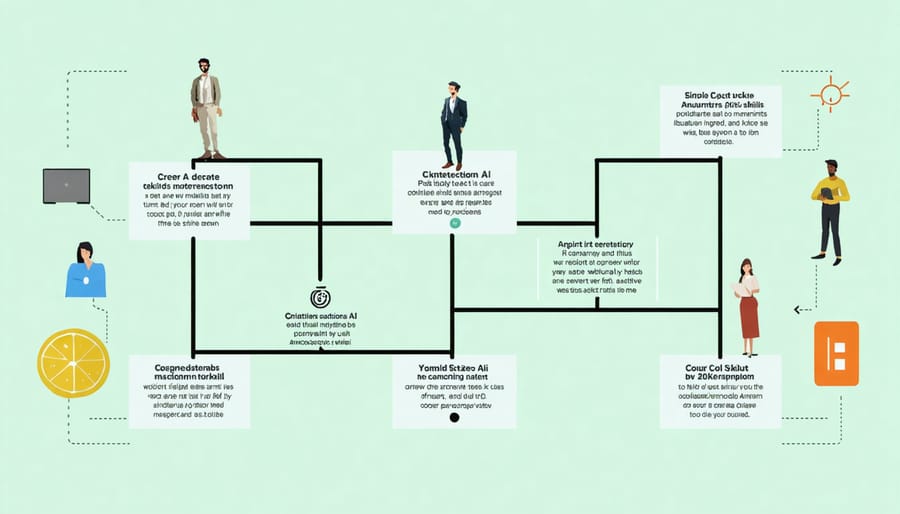
Building Your Cross-Industry AI Skill Set
Essential Technical Foundations
The foundation of cross-industry AI expertise lies in mastering a set of essential AI skills that remain valuable regardless of the sector you work in. Programming languages like Python and R form the backbone of AI development, while a solid understanding of statistics and probability theory enables effective data analysis and model development.
Machine learning fundamentals, including supervised and unsupervised learning techniques, are crucial across all industries. Whether you’re developing predictive maintenance systems for manufacturing or creating recommendation engines for e-commerce, these core concepts remain consistent. Data preprocessing and feature engineering skills are equally important, as clean, well-structured data is essential for successful AI implementation in any field.
Version control and collaborative development tools like Git have become standard practices across industries. Additionally, understanding API development and integration allows AI solutions to communicate effectively with existing systems, regardless of the industry context.
Cloud computing platforms such as AWS, Google Cloud, or Azure provide the infrastructure for AI deployment, making familiarity with these services increasingly valuable. Knowledge of basic cybersecurity principles ensures that AI solutions remain secure and compliant with industry standards, while experience with agile methodologies helps in managing AI projects effectively across different business environments.
Industry-Specific Adaptations
Adapting AI knowledge across different industries requires a strategic approach that considers each sector’s unique challenges and requirements. For example, in healthcare, AI applications focus on patient care, diagnosis, and medical imaging, while in finance, the emphasis is on risk assessment, fraud detection, and algorithmic trading.
Manufacturing industries typically leverage AI for predictive maintenance and quality control, whereas retail sectors concentrate on customer behavior analysis and inventory management. The key is understanding how core AI concepts like machine learning, natural language processing, and computer vision can be customized to address industry-specific problems.
To successfully adapt AI knowledge across sectors, professionals should:
1. Study industry-specific regulations and compliance requirements
2. Identify common pain points within the target industry
3. Understand the existing technology infrastructure
4. Learn the industry’s terminology and business processes
5. Connect with domain experts to bridge knowledge gaps
Success in cross-industry adaptation often comes from starting with fundamental AI principles and gradually incorporating sector-specific elements. For instance, a recommendation system developed for e-commerce can be modified for content streaming platforms by adjusting the underlying algorithms to account for different user behavior patterns and engagement metrics.
Remember that while the core AI principles remain constant, the implementation details, data sources, and success metrics will vary significantly between industries. This adaptability is what makes AI professionals valuable across multiple sectors.
Career Transition Strategies
Making a successful cross-industry transition with AI skills requires strategic planning and deliberate action. Start by identifying your transferable AI skills, such as machine learning, data analysis, or automation expertise, which can create valuable career transition opportunities across different sectors.
Begin by researching industries that are actively adopting AI technologies. Healthcare, finance, and manufacturing are particularly receptive to professionals with AI expertise. Create a skills matrix mapping your current capabilities to the requirements of your target industry, and identify any gaps that need addressing.
Network strategically by joining industry-specific AI communities and attending cross-sector technology conferences. These connections can provide invaluable insights into how AI is implemented in different fields and may lead to potential job opportunities.
Consider taking on side projects or consulting work in your target industry to gain relevant experience. This hands-on exposure demonstrates your ability to apply AI solutions in different contexts and builds credibility with potential employers.
Document your cross-industry achievements through case studies and portfolio projects. Focus on highlighting how your AI expertise solved specific business problems, regardless of the industry context. This evidence-based approach helps potential employers understand your value proposition.
Finally, tailor your resume and professional profiles to emphasize adaptability and cross-functional expertise rather than industry-specific experience. Showcase projects that demonstrate your ability to learn quickly and apply AI solutions creatively across different business contexts.
Future-Proofing Your AI Career
As AI continues to reshape industries at an unprecedented pace, future-proofing your career requires a strategic approach focused on adaptability and continuous learning. The key to long-term success lies in developing a versatile skill set that transcends individual industry boundaries.
First, focus on building a strong foundation in AI fundamentals that apply across sectors. This includes machine learning principles, data analysis, and problem-solving methodologies. These core competencies remain valuable regardless of industry shifts or technological advances.
Stay informed about emerging AI applications across different sectors. For instance, while healthcare might currently focus on diagnostic AI, manufacturing might emphasize predictive maintenance. Understanding these various applications helps you identify transferable skills and opportunities for career mobility.
Develop your “AI translation skills” – the ability to communicate AI concepts to non-technical stakeholders. This skill becomes increasingly valuable as more industries adopt AI solutions, creating demand for professionals who can bridge the gap between technical capabilities and business needs.
Consider pursuing certifications in industry-agnostic AI tools and platforms. Cloud-based AI services, popular programming frameworks, and data visualization tools are widely used across sectors, making them valuable additions to your professional toolkit.
Network across industry boundaries by joining AI communities and attending cross-sector conferences. These connections can provide insights into how different industries approach AI challenges and might reveal unexpected career opportunities.
Finally, maintain a project portfolio that demonstrates your ability to apply AI solutions across different contexts. This practical evidence of your cross-industry capabilities will become increasingly valuable as organizations seek professionals who can adapt to evolving technological landscapes.
Cross-industry skills in AI and technology represent a powerful catalyst for career growth and innovation in today’s digital landscape. By understanding how AI applications transcend traditional industry boundaries, professionals can position themselves for diverse opportunities and create more significant impact in their careers.
To effectively leverage cross-industry expertise, focus on developing a strong foundation in core AI concepts while remaining adaptable to different sector requirements. Start by identifying transferable skills such as data analysis, problem-solving, and machine learning fundamentals that are valuable across multiple industries. Then, actively seek projects or roles that allow you to apply these skills in different contexts.
Remember to stay current with emerging trends and continuously expand your knowledge base. Network with professionals from various sectors, participate in cross-industry forums, and explore case studies from different fields. This broader perspective will enhance your ability to innovate and solve complex problems.
Take action today by creating a personal development plan that includes both technical and industry-specific learning goals. Your cross-industry expertise will become an invaluable asset as AI continues to transform the business landscape.
